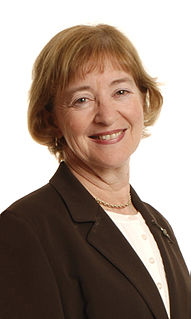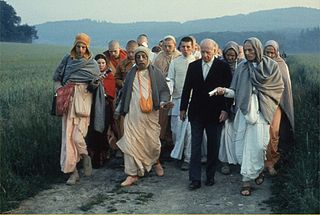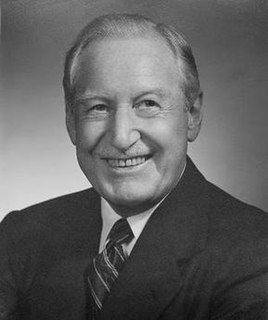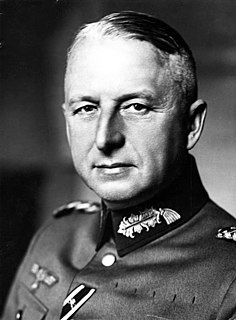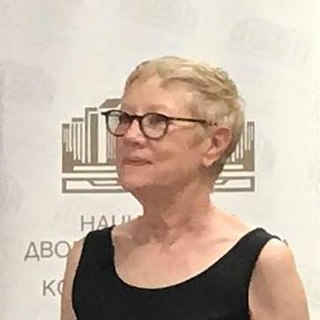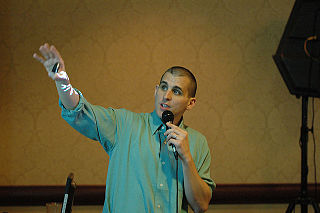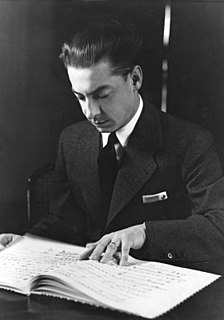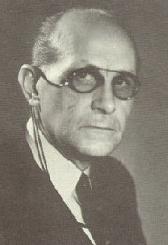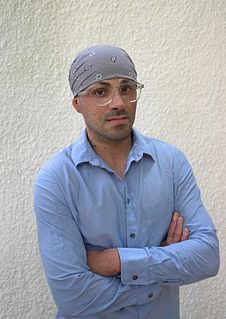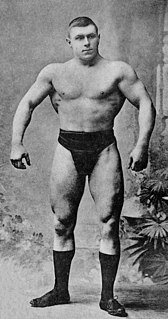Top 589 Mastery Quotes & Sayings - Page 10
Explore popular Mastery quotes.
Last updated on April 15, 2025.
The notion of travelling to far places in order to study alien peoples and cultures, is unique to Western man; it springs from the predatory genius of the Greeks; no primitive peoples have ever come to study us. This is, on the one hand, a disinterested, intellectually inspired impulse. It is one of our glories. But it is, on the other, part and parcel of exploitation. [] The Western obsession with inquiry, with analysis, with the classification of all living forms, is itself a mode of subjugation, of psychological and technical mastery.
At the heart of the WTO is an assault on everything left standing in the commons, in the public realm. Everything is now for sale. Even those areas of life that we once considered sacred like health and education, food and water and air and seeds and genes and a heritage. It is all now for sale. Economic freedom - not democracy, and not ecological stewardship - is the defining metaphor of the WTO and its central goal is humanity's mastery of the natural world through its total commodification.
Power. What do we mean? 'The ability to determine another man's luck.' ...how is it that some men attain mastery over others while the vast majority live and die as minions, as livestock? The answer is a holy trinity. First: God-given gifts of charisma. Second: the discipline to nurture these gifts to maturity, for though humanity's topsoil is fertile with talent, only one seed in ten thousand will ever flower -- for want of discipline. Third: the will to power.
History in Burckhardt's words is 'the record of what one age finds worthy of note in another.' The past is intelligible to us only in light of the present; and we can fully understand the present only in light of the past. To enable man to understand the society of the past and to increase his mastery over the society of the present is the dual function of history.
But let there be no misunderstanding: it is not that a real man, the object of knowledge, philosophical reflection or technological intervention, has been substituted for the soul, the illusion of theologians. The man described for us, whom we are invited to free, is already in himself the effect of a subjection more profound than himself. A 'soul' inhabits him and brings him to existence, which is itself a factor in the mastery that power exercises over the body. The soul is the effect and instrument of a political anatomy; the soul is the prison of the body.
To the average man, life presents itself, not as material malleable to his hand, but as a series of problems...which he has to solve...And he is distressed to find that the more means he can dispose of-such as machine-power, rapid transport, and general civilized amenities, the more his problems grow in hardness and complexity....Perhaps the first thing he can learn form the artists is that the only way of 'mastering' one's material is to abandon the whole conception of mastery and to co-operate with it in love: whosoever will be a lord of life, let him be its servant.
Man is a rational animal—so at least I have been told. … Aristotle, so far as I know, was the first man to proclaim explicitly that man is a rational animal. His reason for this view was … that some people can do sums. … It is in virtue of the intellect that man is a rational animal. The intellect is shown in various ways, but most emphatically by mastery of arithmetic. The Greek system of numerals was very bad, so that the multiplication table was quite difficult, and complicated calculations could only be made by very clever people.
It indicates a person who has not only good manners but who possesses a sense of balance, a sure mastery of himself, a moral discipline that permits him to subordinate voluntarily his own selfish interest to the wider interests of the society in which he lives. The gentleman, therefore is a cultural person in the noblest sense of the word, if by culture we mean not simply wealth of intellectual knowledge but also the ability to fulfil one's duty and understand one's fellow man by respecting / every principle, every opinion, every faith that is sincerely professed.
Risk is more than is required. Learn more than is normal. Be strong. Show courage. Breathe. Excel. Love. Lead. Speak your truth. Live your values. Laugh. Cry. Innovate. Simplify. Adore mastery. Release mediocrity. Aim for genius. Stay humble. Be kinder than expected. Deliver more than is needed. Exude passion. Shatter your limits. Transcend your fears. Inspire others by your bigness. Dream big but start small. Act now. Don't stop. Change the world.
Archery, fencing, spear fighting, all of the martial arts, tea ceremony, flower arranging...in all of these, correct breathing, correct balance, and correct stillness help to remake the individual. The basic aim is always the same: by tirelessly practicing a given skill, the student finally sheds the ego with its fears, worldly ambitions, and reliance on objective scrutiny - sheds it so completely that he becomes the instrument of a deeper power, from which mastery falls instinctively, without further effort on his part, like a ripe fruit.
My mother was a continual source of wisdom and great advice...she taught me that there is always a way around a problem-you've just got to find it. Keep trying doors; one will eventually open. She also taught me to accept failure as part and parcel of life. It's not the opposite of success; it's an integral part of success. I talk a lot about learning to become fearless in your approach to life. But fearlessness is not the absence of fear. It's the mastery of fear. It's all about getting up one more time than you fall down.
The greatest achievement is selflessness.
The greatest worth is self-mastery.
The greatest quality is seeking to serve others.
The greatest precept is continual awareness.
The greatest medicine is the emptiness of everything.
The greatest action is not conforming with the worlds ways.
The greatest magic is transmuting the passions.
The greatest generosity is non-attachment.
The greatest goodness is a peaceful mind.
The greatest patience is humility.
The greatest effort is not concerned with results.
The greatest meditation is a mind that lets go.
The greatest wisdom is seeing through appearances.
Our Nation, a great stage for the acting out of great thoughts, presents the classic confrontation between Locke's views of the state of nature and Rousseau's criticism of them... Nature is raw material, worthless without the mixture of human labor; yet nature is also the highest and most sacred thing. The same people who struggle to save the snail-darter bless the pill, worry about hunting deer and defend abortion. Reverence for nature, mastery of nature- whichever is convenient.
In astronomy, the law of gravitation is plainly better worth knowing than the position of a particular planet on a particular night, or even on every night throughout a year. There are in the law a splendour and simplicity and sense of mastery which illuminate a mass of otherwise uninteresting details. But in history the matter is far otherwise. Historical facts, many of them, have an intrinsic value, a profound interest on their own account, which makes them worthy of study, quite apart from any possibility of linking them together by means of causal laws.
Do it the hard way! Think ahead of your job. Then nothing in the world can keep the job ahead from reaching out for you. Do it better than it need be done. Next time doing it will be child's play. Let no one or anything stand between you and the difficult task, let nothing deny you this rich chance to gain strength by adversity, confidence by mastery, success by deserving it. Do it better each time. Do it better than anyone else can do it. I know this sounds old-fashioned. It is, but it has built the world.
The general verdict among the German generals I interrogated in 1945 was that Field-Marshal von Manstein had proved the ablest commander in their Army, and the man they had most desired to become its Commander-in-Chief. It is very clear that he had a superb sense of operational possibilities and equal mastery in the conduct of operations, together with a greater grasp of the potentialities of mechanized forces than any other commander who had not been trained in the tank arm. In sum, he had military genius.
Our time has been distinguished, more than by anything else, by a mastery, a control, of the external world, and by an almost total forgetfulness of the internal world. If one estimates human evolution from the point of view of knowledge of the external world, then we are in many respects progressing. If our estimate is from the point of view of the internal world, and of oneness of internal and external, then the judgment must be very different.
The Irishman frees himself from slavery when he realizes the truth that the capitalist system is the most foreign thing in Ireland. The Irish question is a social question. The whole age-long fight of the Irish people against their oppressors resolves itself in the last analysis into a fight for the mastery of the means of life, the sources of production, in Ireland. Who would own and control the land? The people, or the invaders; and if the invaders, which set of them - the most recent swarm of land thieves, or the sons of the thieves of a former generation?
Often nothing keeps the pupil on the move but his faith in his teacher, whose mastery is now beginning to dawn on him .... How far the pupil will go is not the concern of the teacher and master. Hardly has he shown him the right way when he must let him go on alone. There is only one thing more he can do to help him endure his loneliness: he turns him away from himself, from the Master, by exhorting him to go further than he himself has done, and to "climb on the shoulders of his teacher."
The aim of education is to develop resources in the child that will contribute to his well-being as long as life endures; to develop power of self-mastery that he may never be a slave to indulgence or other weaknesses, to develop [strong] manhood, beautiful womanhood that in every child and every youth may be found at least the promise of a friend, a companion, one who later may be fit for husband or wife, an exemplary father or a loving intelligent mother, one who can face life with courage, meet disaster with fortitude, and face death without fear.
The more you pursue distractions, the less effective any particular distraction is, and so I'd had to up various dosages, until, before I knew it, I was checking my e-mail every ten minutes, and my plugs of tobacco were getting ever larger, and my two drinks a night had worsened to four, and I'd achieved such deep mastery of computer solitaire that my goal was no longer to win a game but to win two or more games in a row--a kind of meta-solitaire whose fascination consisted not in playing the cards but in surfing the streaks of wins and losses.
The mind is incredible. Once you've gained mastery over it, channeling its powers positively for your purposes, you can do anything. I mean anything. The secret is to make your mind work for you not against you. This means constantly being positive. Constantly setting up challenges you can meet either today, next week, or next month. "I can't..." should be permanently stricken from your vocabulary, especially the vocabulary of your thoughts. You must see yourself always growing and improving.
A work in progress quickly becomes feral. It reverts to a wild state overnight. It is barely domesticated, a mustang on which you one day fastened a halter, but which now you cannot catch. It is a lion you cage in your study. As the work grows, it gets harder to control; it is a lion growing in strength. You must visit it every day and reassert your mastery over it. If you skip a day, you are, quite rightly, afraid to open the door to its room. You enter its room with bravura, holding a chair at the thing and shouting, "Simba!
With impeccable timing and a fine instinct for the telling detail, Francesca Abbate evokes the plenitudes and the deprivations of human habitation, the nurturing richness of landscape, and the soul-wound wrought by casual defacement. Abbate has a superb capacity for distillation and a mastery of poetic line, and her diction is remarkably flexible, accommodating both the demotic and the lyrical. Her poems are as consistent in quality as they are varied in pacing, surface, and tone. A fine first book.
The progressive development of man is vitally dependent on invention. It is the most important product of his creative brain. Its ultimate purpose is the complete mastery of mind over the material world, the harnessing of the forces of nature to human needs. This is the difficult task of the inventor who is often misunderstood and unrewarded. But he finds ample compensation in the pleasing exercises of his powers and in the knowledge of being one of that exceptionally privileged class without whom the race would have long ago perished in the bitter struggle against pitiless elements. . . .
Knowledge passes from dance teacher into the student through the process of mane, which is often translated as imitation, but learning to dance is more a process of total identification than of simple copying. We repeat the movements of our teachers until we can duplicate them exactly, until, in a sense, we have absorbed the teacher's mastery into ourselves. Artistic technique must be fully integrated into the cells of our bodies if we are to use it to express what is in our hearts, and this takes many years of practice.
Almost in the same way as earlier physicists are said to have found suddenly that they had too little mathematical understanding to be able to master physics; we may say that young people today are suddenly in the position that ordinary common sense no longer suffices to meet the strange demands life makes. Everything has become so intricate that for its mastery an exceptional degree of understanding is required. For it is not enough any longer to be able to play the game well; but the question is again and again: what sort of game is to be played now anyway?
Creating a new theory is not like destroying an old barn and erecting a skyscraper in its place. It is rather like climbing a mountain, gaining new and wider views, discovering unexpected connections between our starting points and its rich environment. But the point from which we started out still exists and can be seen, although it appears smaller and forms a tiny part of our broad view gained by the mastery of the obstacles on our adventurous way up.
Death is unimportant to a yogi; he does not mind when he is going to die. What happens after death is immaterial to him. He is only concerned with life-with how he can use his life for the betterment of humanity. Having undergone various types of pain in his life and having acquired a certain mastery over pain, he develops compassion to help society and maintains himself in purity and holiness. The yogi has no interest beyond that.
He walked on without resting. He had a terrible longing for some distraction, but he did not know what to do, what to attempt. A new overwhelming sensation was gaining more and more mastery over him every moment; this was an immeasurable, almost physical, repulsion for everything surrounding him, an obstinate, malignant feeling of hatred. All who met him were loathsome to him - he loathed their faces, their movements, their gestures. If anyone had addressed him, he felt that he might have spat at him or bitten him... .
People who truly have control over time always have some in their pocket to give to someone in need. A sense of priorities drives their use of time and it can shift away from the ordinary work that’s easy to justify, in favor of the more ethereal, deeper things that are harder to justify. They protect their time from trivia and idiocy; these people are time rich. They provide themselves with a surplus of time. They might seem to idle, or relax more often than the rest, but that just might be a sign of their mastery, not their incompetence.
Even without comparing ourselves to the world's greatest, we set such high standards for ourselves that neither we nor anyone else could ever meet them-and nothing is more destructive to creativity than this. We fail to realize that mastery is not about perfection. It's about a process, a journey. The master is the one who stays on the path day after day, year after year. The master is the one who is willing to try, and fail, and try again, for as long as he or she lives.
In order to be a world-class expert in anything, be it audiology, drama, music, art, gymnastics, whatever, one needs to have a minimum of 10,000 hours of practice. Unfortunately, it doesn't mean that if you put in 10,000 hours that you will become an expert, but there aren't any cases where someone has achieved world-class mastery without it! So the time spent at the activity is indeed the most important and influential factor.
In our profession someone can be very brilliant and acquire total technical mastery. Yet in the last resort, the only thing that really counts is his quality as a human being. For music is created by Man for Man. And if someone sees nothing more than notes in it, this can perhaps be very interesting, but it cannot enrich him. And music should exist for one purpose only; to enrich Man and give him something he has lost in most respects.
At the utmost, the active-minded young man should ask of his teacher only mastery of his tools. The young man himself, the subject of education, is a certain form of energy; the object to be gained is economy of his force; the training is partly the clearing away of obstacles, partly the direct application of effort. Once acquired, the tools and models may be thrown away.
I had always wanted to love Eve as Denny loved her, but I never had because I was afraid. She was my rain. She was my unpredictable element. She was my fear. But a racer should not be afraid of the rain; a racer should embrace the rain. I, alone, could manifest a change around me. By changing my mood, my energy, I allowed Eve to regard me differently. And while I cannot say that I am a master of my own destiny, I can say that I have experienced a glimpse of mastery, and I know what I have to work toward.
When I rest I feel utterly lifeless except that my throat burns when I draw breath... I can scarcely go on. No despair, no happiness, no anxiety. I have not lost the mastery of my feelings, there are actually no more feelings. I consist only of will. After each few metres this too fizzles out in unending tiredness. Then I think nothing. I let myself fall, just lie there. For an indefinite time I remain completely irresolute. Then I make a few steps again.
When man has mastered money he shall have mastered not only his economic problem of prosperity but also his political problem, for he will see that money has no place in state functions, and, the money power being entirely in his own hands, he will easily master the state and clearly define its services. Thus money must be seen as the means of mastery of all economic and political problems. Until we have mastered money we shall not master any of our problems. Not money, but a false money system, is the root of all evil.
"Spirituality" in business sounds lofty. How practical is it? The answer is "very." There's a fundamental way in which Spirit and consciousness contribute to worldly success-and it has long been ignored. [. . .] As experts, authors and gurus often note, the game of business is to influence the external world. But here's the point: How can you control your environment if you can't even manage your own thoughts and emotions? In other words, how do you rule the world without first mastering yourself? The cornerstone of effective leadership is self-mastery.
And, partly, I had found that theory-structure was a superpower in helping one get what one wanted. As I had early discovered in school wherein I had excelled without labor, guided by theory, while many others, without mastery of theory failed despite monstrous effort. Better theory I thought had always worked for me and, if now available could make me acquire capital and independence faster and better assist everything I loved.
When I was starting out, conceptual photography had become something that had to be amateur - like, that had to be black-and-white, or photocopied, or really not an object in order to be taken seriously. It had to work against technical mastery, and so on. So I think that my work is full of obstacles in the sense that it does look highly familiar and accessible. It does look like it's already "solved at first sight." It does look like it's part of a larger industry.
Many people make the mistake of thinking that all the challenges in their lives would dissipate if they just had enough money. Nothing could be further from the truth. Earning more money, in and of itself, rarely frees people. It's equally ridiculous to tell yourself that greater financial freedom and mastery of your finances would not offer your greater opportunities to expand, share, and create value for yourself and others.
Love is the ability to live your life with an empowered heart without attachment to the outcome, the ability within yourself to distinguish within yourself between love and fear and choose love regardless of what is going on inside yourself or outside. This is self-mastery or authentic power...that means you become clear, forgiving, humble and loving... you are grounded in harmony, cooperating, sharing and reverence for life.
Misfortune occurs or can occur to anyone, of any sort of character. The eudaimonic has more resources to avoid it (being in autonomous control of his appetites and assumptions) and more resources to deal with it if it occurs (being better able to put it in perspective and maintain his own evenness of self-mastery). Tragedy as a dramatic form is meant to foster the ethos of sophrosyne or moderation, "nothing to excess"; it nurtures a sense of distance from the dominant illusions and delusions that may infect even aristoi.
People in places many of us never heard of, whose names we can't pronounce or even spell, are speaking up for themselves. They speak in languages we once classified as exotic but whose mastery is now essential for our diplomats and businessmen. But what they say is very much the same the world over. They want a decent standard of living. They want human dignity and a voice in their own futures. They want their children to grow up strong and healthy and free.
There is a certain point of unity within the self, and between the self and its world, certain complicity and magnetic mating, a certain harmony, that conscious mind and will cannot direct. Perhaps analysis and the separate mastery of each element are required before the instincts are ready to assume command, but only at first. Command by instinct is swifter, subtler, deeper, more accurate, more in touch with reality than command by conscious mind. The discovery takes one's breath away.
The frequent employment of one's will power masters all organs of movement and trains them to perform feats which otherwise would have been difficult,painful and even impossible. The man becomes independent and self-reliant; he will never be a coward,and, when real danger threatens,he is the one who is looked up to by others. The knowledge of one's strength entails a real mastery over oneself; it breeds energy and courage,helps one over the most difficult tasks of life, and procures contentment and true enjoyment of living.
Freedom and happiness come from understanding - and working with - our limits. Begin at once a program of self-mastery. Stick with your purpose. Do not seek external approval. Do not worry about anything outside of your control. The only things you command are your thoughts and actions. We choose our response. Stop aspiring to be anyone other than your own best self: for that does fall within your control.
I must say what I admire most is the person who masters an area of practical experience, and can teach me something. I mean, my local midwife has taught me how to keep bees. Well, she can't understand anything I write. And I find myself liking her, may I say, more than most poets. And among my friends I find people who know all about boats or know all about certain sports, or how to cut somebody open and remove an organ. I'm fascinated by this mastery of the practical.

